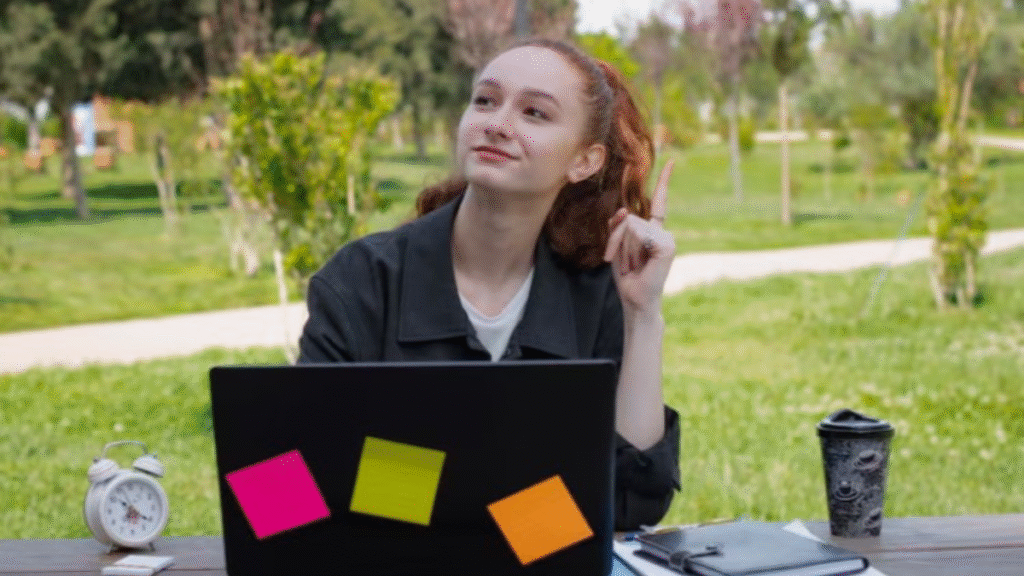An organized environment does more than look good — it influences how we think, learn, and do work. Disorganized spaces sap mental energy, while organized spaces allow for calmness, clarity, and attention. Organization is just as important to a student’s desk as a home office or a classroom. When everything is in order, the brain doesn’t waste energy finding things or filtering distractions. An organized space instantly sets a standard for a productive habit and allows people to push forward towards completing tasks. The outcome is better learning opportunities, improved energy levels, or improved concentration. The change is often as simple as cleaning off a desk or arranging a clean workspace and it will instantly feel easier for studying or completing work.
To observe and speak to the results, a college student shared, “I can say my grades improved dramatically once I began to organize my study area.” By actively removing areas of clutter, applying the use of organized labeled folders and simply organizing her area for 5 minutes each day and after each session, she improved her ability to focus and finish her assignments. From this small change of managing her workspace felt like a small change, and it became a consistent advantage for her throughout every semester.
The Science Behind Focus
Focus is not just about willpower — it’s heavily influenced by the environment around us. Studies show that visual clutter competes for attention in the brain, reducing working memory and slowing down processing speed. When you clear your surroundings, you give your mind space to think freely and absorb new information.
An organized environment supports the brain’s natural need for order. This is why tidy classrooms, calm offices, or neatly arranged study spaces tend to enhance focus and retention. When distractions are minimized, your brain doesn’t have to filter through unnecessary details, allowing learning to happen more efficiently.
Myth vs reality: Many people believe they can thrive in chaos, claiming that messy spaces fuel creativity. In reality, constant clutter increases stress hormones and divides attention, making it harder to focus and complete complex tasks. True creativity flourishes best in calm, structured environments.
Reducing Distractions at Home
Distractions at home can derail even the most motivated learner. My perspective is that managing focus starts with managing surroundings. A quiet, organized space signals the brain that it’s time to work, while a cluttered or noisy one sends mixed messages.
To create a learning-friendly environment, remove unnecessary items from your workspace and keep only what supports your current task. Natural lighting, comfortable seating, and minimal background noise make a big difference in productivity.
It’s also helpful to separate areas for different activities — study, relaxation, and meals. This physical separation helps the brain switch modes smoothly, improving both focus and rest.
By setting simple boundaries, like turning off notifications or using noise-canceling headphones, you train your mind to stay on track. An orderly home environment builds discipline and allows focus to become a natural part of your daily rhythm.
The Role of Physical Environment
The physical environment strongly affects how well we learn and stay engaged. Clean, organized surroundings reduce stress and help the brain prioritize what matters. Whether it’s a study area, classroom, or home office, the right setup can create a calm and productive mindset that supports better focus and retention.
How does organization improve learning ability?
When materials are easy to find and spaces are neat, the brain processes information more smoothly. Organization saves time, boosts confidence, and strengthens memory recall during study or work sessions.
What should I do if I don’t have enough space for my learning materials?
If you’re struggling with limited room, consider using secure storage in Peabody ma to keep extra items safely stored but still accessible. This keeps your main area clear, while your books, electronics, and equipment remain organized and protected.
Why does clutter make studying harder?
Clutter increases mental load. When your surroundings are messy, your mind constantly shifts attention between irrelevant details. A tidy environment helps you stay focused on one task at a time, improving both speed and understanding.
By creating order in your physical space, you build mental clarity that strengthens focus, reduces fatigue, and enhances overall learning performance.
Smart Systems for Learning Success
To stay consistent, build simple organization systems that fit your lifestyle and learning goals.
Here are a few practical steps to help:
- Schedule daily five-minute declutter sessions.
- Keep your study tools in one accessible spot.
- Use folders or digital files for each subject.
- Plan short breaks to prevent burnout.
- End every study session with a quick reset.
These small systems keep your environment calm and your mind alert.
Common mistakes to avoid: Mixing work and rest areas, skipping cleanup routines, or multitasking during study sessions disrupt focus. Staying consistent ensures lasting improvement in concentration and learning.
Building Daily Organization Habits
An Illinois middle school teacher once explained how the organization of her classrooms affected her students’ attention. Prior to the organization, students desks often became messy, and “stuff” (materials) was strewn around the room, which made lessons feel hectic. Students misplaced papers or lost track of assignments, and this created anxiety, for both students and the teacher.
She began with small steps. Every student received a folder system for their desks, supplies were organized on a shelf for easy access, and time was set aside each day for clean-up. After just a few weeks, she noticed a significant change. Students spent less time searching for things, and more time about engagement in lessons. The mood of the classroom changed, and it became calmer and more productive. Parents even mentioned the students seemed to be more attentive while studying at home.
This change indicates an important point; organization is not about perfection but creating systems that support learning. A teacher can help students use organization to support steady routines that make studying and teaching more enjoyable. Adding some consistent organization, no matter how small, combined with a bit of consistency contributes to deeper learning and reduced anxiety.
Key takeaway summary: Organized environments promote focus, confidence, and learning efficiency. Simple systems, including labeled folders, cleanup routines, and designated workspace zones for supplies will support a positive habit. Over time, these organization practices reduce distractions, time on task increases, and learning becomes smoother. All of this provides for a trusted and focused space for life to flourish.
Long-Term Benefits of Order
Maintaining an organized environment builds lifelong skills that extend far beyond learning. When you manage your surroundings intentionally, your mind follows the same discipline.
The benefits of organized environments on focus and learning go beyond immediate results — they shape how you think, plan, and succeed. Make order part of your daily rhythm, and you’ll discover that clarity in your space creates clarity in your mind, setting the foundation for lasting personal and academic growth.







